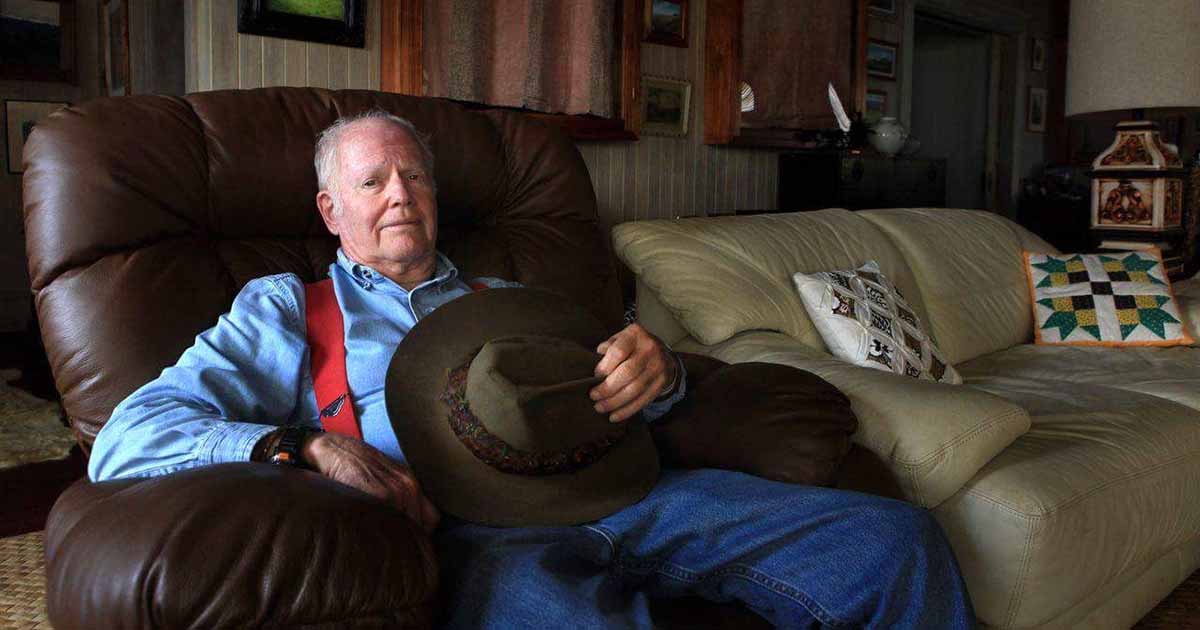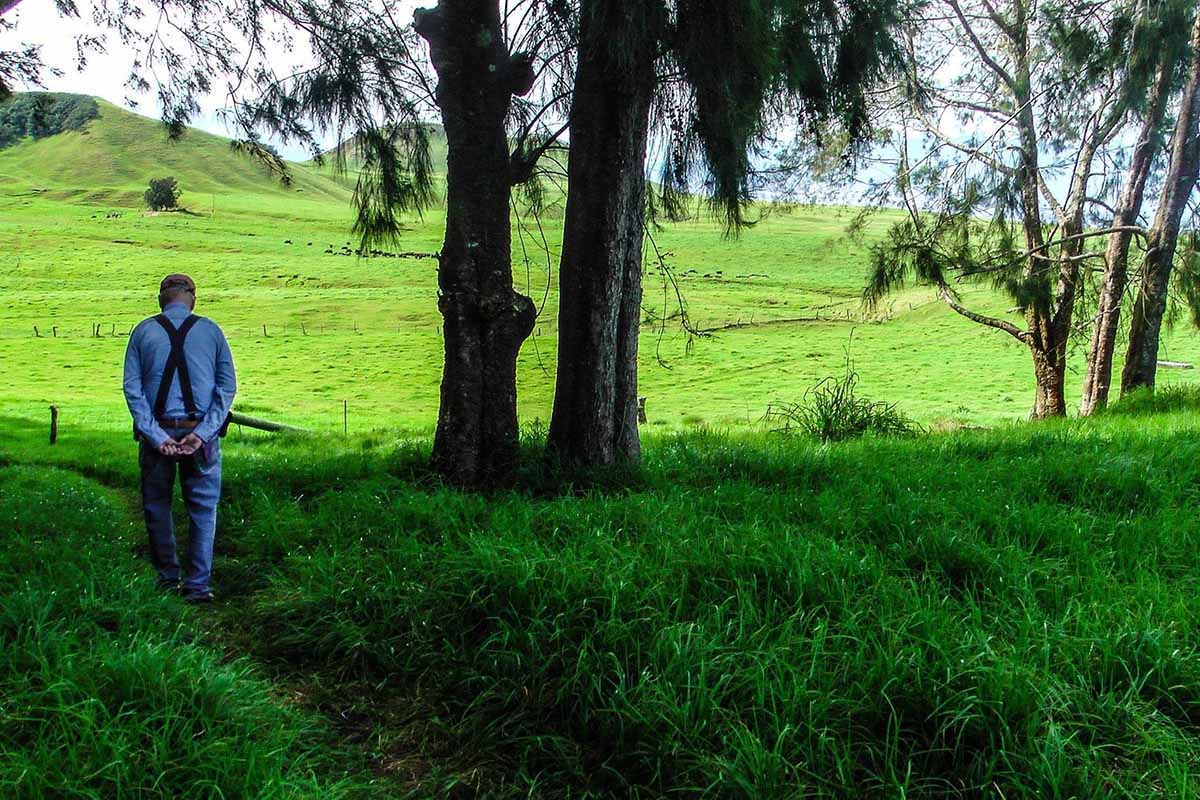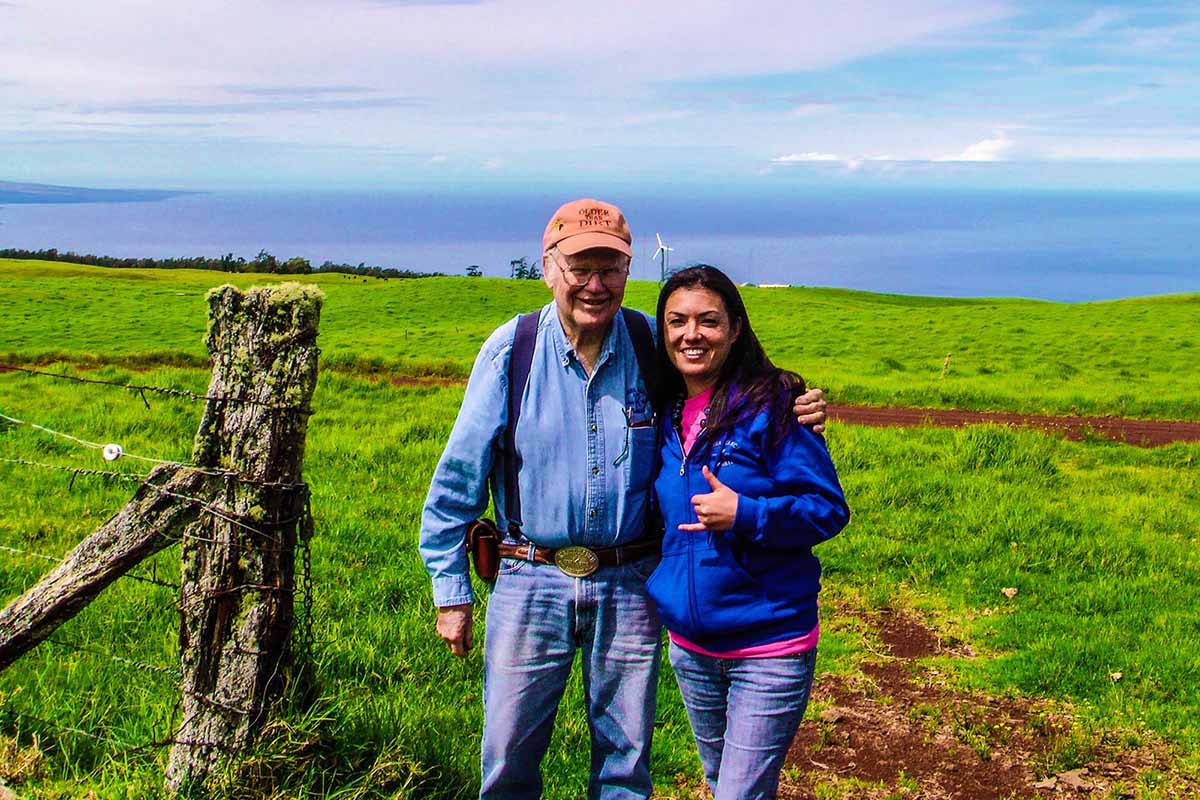
In 1928, Joseph Atherton Richards, Paniolo Hall of Fame Class of 2000, with his partner Ronald von Holt, purchased a large swatch of Kohala ranchlands from Frank Woods, a descendant of John Palmer Parker, and the husband of Eva Parker Woods. Atherton named the verdant spread “Kahuā,” and from there, Kahuā Ranch grew into a paniolo legacy, still very much alive and well today.
Atherton’s nephew, Herbert Montague “Monty” Richards, Jr., is also a member of the Class of 2000, and one of Hawai‘i Island’s best-remembered and respected ranchers. His father, Monty Richards Sr., was more of a politician than rancher. He ran unsuccessfully for Honolulu Mayor and Territory of Hawai‘i Senate, and served as the Republication national committee representative. Monty’s grandparents were well known philanthropists, and his great-great grandfather was missionary Amos Starr Cooke, who partnered with Samuel Castle to form “Big 5” company Castle and Cooke.
Much of Monty’s story has been captured in the PHOF oral history interview, even though he said at the time, “My forgettery works better than my memory now.”

Monty was born on the ranch, and knew it was in his blood. “I wanted to work on the ranch… ten, eleven years of age, hey, this is what I want to do,” he says. “And I carried it straight through; I had skin-ropes, kaula ‘ili, which is the braided rawhide rope, and I had a bullwhip. I knew how to use that, and when I went away east, my bullwhip went with me.”
He attended Choate in Connecticut and Wesleyan School, then earned a degree in Animal Husbandry from Cal Poly. When he came back to Kahuā in 1955, then-manager, and Monty’s godfather Rally Greenwell (Class of 2017) hired him as an all-purpose worker, doing every job from bookkeeper to the slaughterhouse.
“I couldn’t ride a horse as well as those folks could, and they knew it,” he says in his oral history. “I knew it. There’s no sense kidding yourself. No sense trying to be the top hand. I wasn’t… But, you’re there to do a job, and if you want the life, you suck it up and keep going… you just do the best you can.”
Monty started managing Kahuā himself in 1970, and in the 1980s, the land was divided into two ranches: Kahuā and Ponoholo. Monty was an innovative and creative rancher. First to use artificial insemination and holistic, intensive grazing methods, he tried to diversify, by raising dairy cows, then bought several hundred ewes from Ni‘ihau. (and they’ve been in the lamb business ever since). They also grew greenhouse carnations (so as not to compete with the Waimea rose farms), hydroponic lettuce and tomatoes, and established one of the first windmill farms in the state.
Eventually, Monty saw a future in agro-tourism, and began a collection of enticements to bring visitors to the Ranch, including horseback riding and ATV excursions, ranch tours, eco tours, even a weekly Cowboy BBQ Dinner on the porch.
“The next challenge right now that we are going on is keeping as many cattle here as we can, through a complete different marketing of grass-fed animals… and retaining ownership. That’s the challenge right now, making that work. And that’s what we’re doing.”

He was flattered to be inducted into the PHOF, humbly saying “I can think of many many more people more deserving than I was, who’ve done more for the state and for the cattle industry.” Sadly, Monty passed away in 2018, leaving a legacy of community service. He was a University of Hawai‘i of Regent member, chairman of the USDA Farm Service Agency State Committee, and a board member from Bank of Hawai‘i, Hawai‘i Preparatory Academy, The Nature Conservancy, and Hawai‘i Cattlemen’s Association and many others.
Something he said that makes us smile is this. “If you don’t make a million dollars you can live like a million because you live on the land.” A hui hou, Monty.
